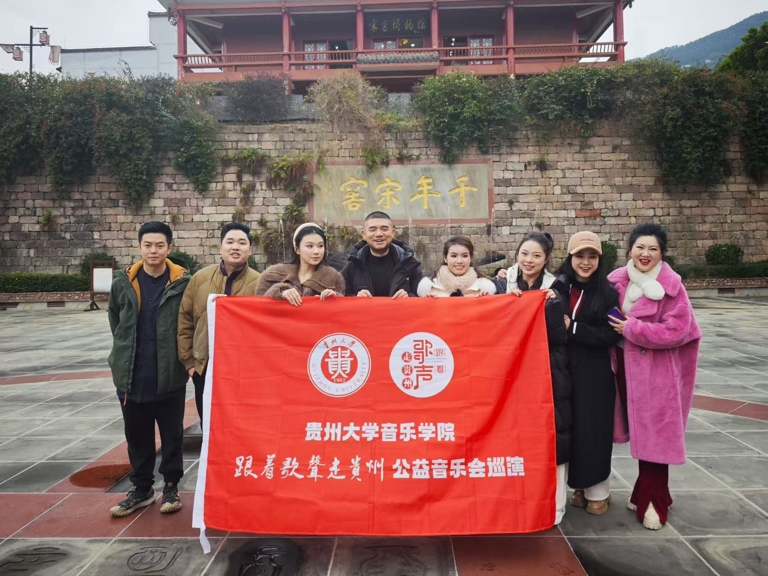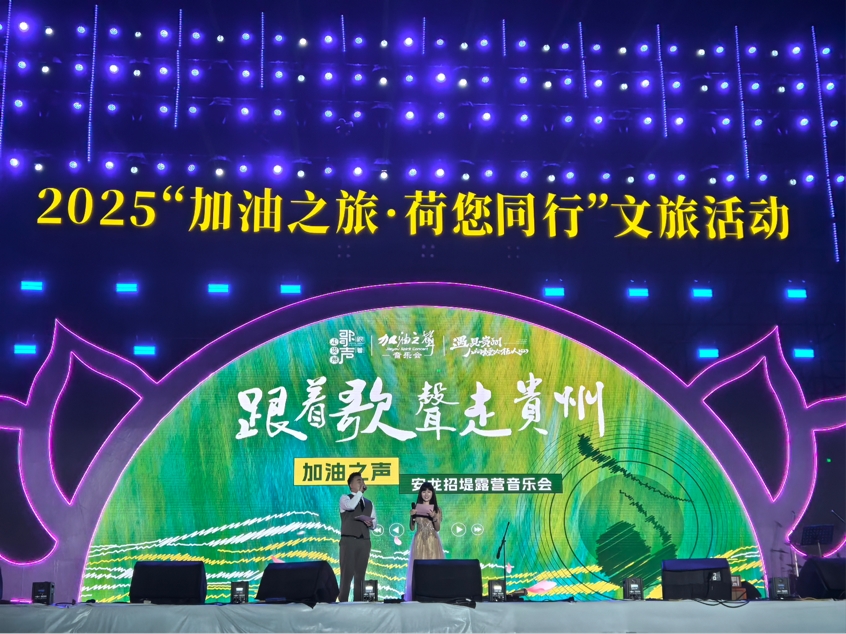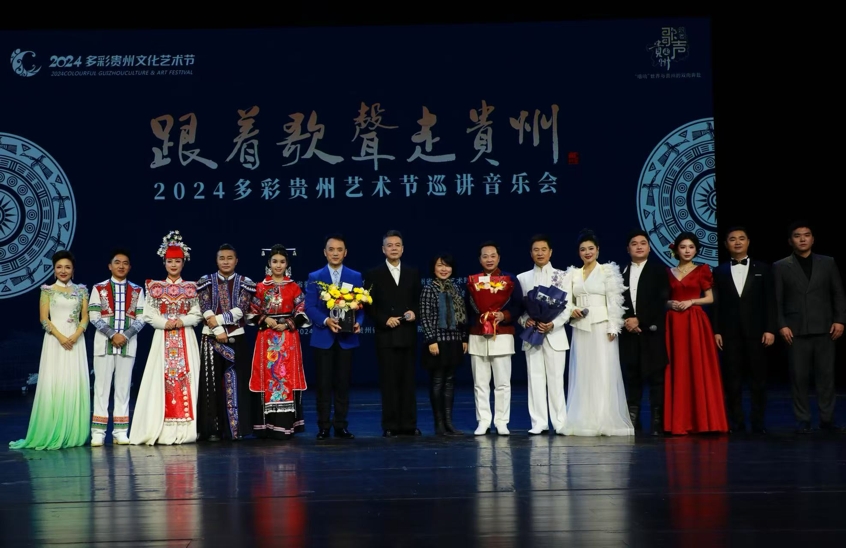Recently, the project "Following the Songs to Guizhou", led by Li Sijie — a master's student in Music from Guizhou University and an inheritor of ethnic music — has attracted widespread attention due to its innovative exploration and practical implementation of Guizhou's ethnic culture. As the core leader of the project, Li Sijie, with his outstanding ability to coordinate team collaboration and cutting-edge awareness of innovation, led the team to break through bottlenecks and create distinctive features, becoming the key "engine" for the project's success.

Uniting People Through Collaboration, Activating the "Diversified Potential" of the Team
The team of the "Following the Songs to Guizhou" project consists of students from 4 majors, including music, drama, big data, and management, with significant differences in academic backgrounds and complex division of labor requirements. Faced with this situation, Li Sijie established a collaboration mechanism of "precision division of labor + dynamic coordination" from the early stage of the project launch: first, he sorted out each member's professional strengths and interest directions through one-on-one communication, divided the team into the "Cultural Research Group", "Digital Technology Group", and "Communication and Operation Group", and clarified the core tasks of each group; at the same time, he held a "cross-group docking meeting" every week to promote the Technology Group and the Research Group to synchronize the progress of cultural material collection, and the Operation Group and the Technology Group to connect the function optimization of the mini-program, ensuring the barrier-free flow of information.
During the project research phase, the team once had differences over the "digital presentation form of ethnic songs" — the Cultural Research Group hoped to retain the original ecology of traditional singing styles, while the Technology Group advocated adding interactive sound effects to enhance the sense of experience. Instead of making a simple decision, Li Sijie organized team members to conduct on-site visits to Qiandongnan Miao and Dong Autonomous Prefecture in Guizhou, and invited local inheritors of intangible cultural heritage to sing on site and explain the cultural connotations behind the songs. After personally experiencing the profoundness of ethnic culture, the team reached a consensus: to present the songs in the form of "original audio + dynamic lyrics annotations + cultural story pop-ups", which not only retains the essence of tradition but also takes into account the modern communication experience. "Li Sijie can always find the 'greatest common divisor' among different viewpoints and allow everyone's professional value to be fully exerted," commented Wang Yu, a team member majoring in digital technology.

Breaking Boundaries Through Innovation, Endowing Culture with "New Expressions"
"We don't want to be just 'collectors of ethnic songs', but more importantly, 'cultural communicators'." This is the core idea put forward by Li Sijie during the project planning phase, which also laid the innovative tone for the project. Aiming at the pain points of "single form and limited audience" in the spread of traditional ethnic culture, he led the team to explore a three-dimensional innovative path of "sound + scene + interaction":
In terms of content exploration, Li Sijie proposed "taking songs as clues to connect regional culture" — the team not only collected more than 300 classic ethnic songs such as Miao Feige (Flying Songs) and Dong Grand Songs but also recorded the festival customs, costume culture, and food stories corresponding to the songs, forming a content system of "one song enlivens a cultural scene"; in terms of technical presentation, he led the development of the WeChat mini-program "Following the Songs to Guizhou". He also collaborated with local cultural and tourism departments in Guizhou and new media accounts of colleges and universities to launch the UGC (User-Generated Content) activity "I Sing Guizhou Songs", encouraging netizens to upload clips of themselves singing ethnic songs and turning the project from a "music work" into a "public-participated cultural communication activity".

The team's instructor pointed out: "The innovation of the 'Following the Songs to Guizhou' project lies in accurately connecting the link of 'cultural exploration — technical transformation — public communication'. As the leader, Li Sijie has demonstrated a keen insight into cultural value and market demand, as well as the executive ability to implement innovative ideas."
Talking about the future of the project, Li Sijie said that the team will continue to deepen cooperation with local intangible cultural heritage institutions in Guizhou and plans to launch the "Young Intangible Cultural Heritage Singers Training Program". Through the form of online courses + offline workshops, more young people will be encouraged to participate in the inheritance of ethnic culture. "The experience of this National Innovation Competition has made me understand that a good project is not 'the highlight of one person', but 'the joint efforts of a group of people'; innovation is not an empty imagination, but finding a new path in understanding needs and solving problems," Li Sijie stated.
Media Contact
Company Name: Lingrong Culture
Contact Person: Wang Yurong
Email:Send Email
Phone: 2134007851
Address:3185 Wilshire blvd
City: Los Angeles
State: CA
Country: United States
Website: www.lingrongculture.com
